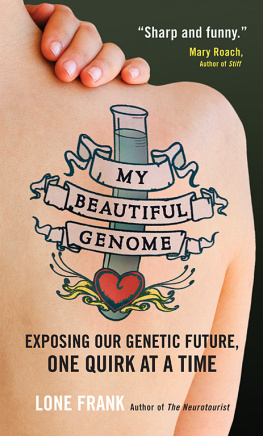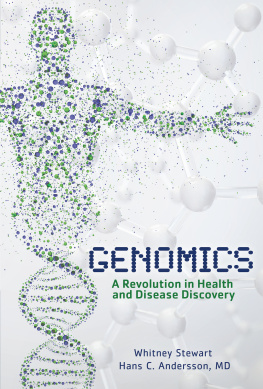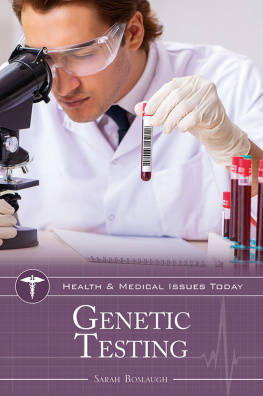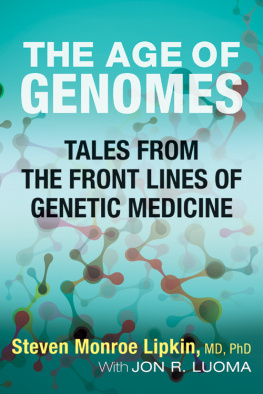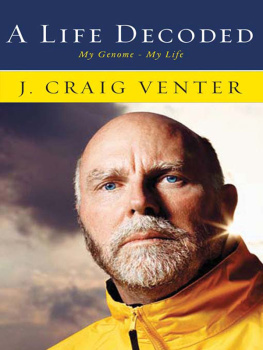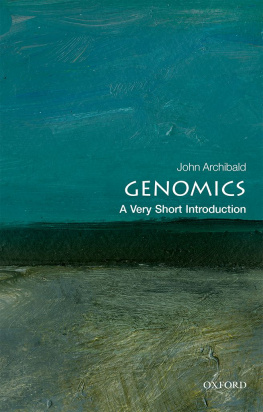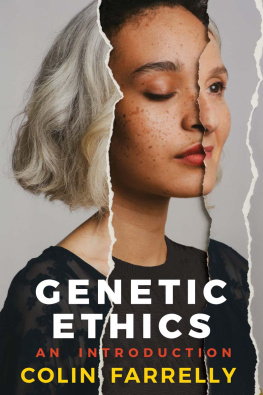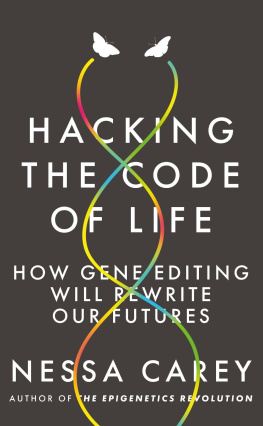Advance Praise for My Beautiful Genome
I havent seen Lone Franks entire genome, but its obvious from the first page of My Beautiful Genome that shes got the SKFF2 gene (Sharp as a Knife and Friggin Funny, Too). No decoding needed here: I love this book.
Mary Roach , author of Stiff and Packing for Mars
As Lone Frank compellingly argues, the advent of personal genomics promises to be as socially and philosophically transformative in the next twenty years as personal computing was in the last twenty. My Beautiful Genome probes and explores the critical questions and unexpected nuances this new science raises about who exactly we areas a species, and as individuals.
Brian Christian , author of The Most Human Human
Provocative, wryly humorous, illuminating, deeply personal if you want to know more about the world of consumer genetics, into which we appear to be unstoppably heading, this is the book for you.
Frank Ryan , author of Virolution and Metamorphosis
Before I read My Beautiful Genome I could not decide if I would ever get my genome analyzed, but now Im sending in my spit ASAP. Lone Frank is one of the surest science writers Ive ever read. She not only explains with great clarity the technical twists and turns of the science behind unraveling the double helix, she does so in such a page-turning, conversational style that once I started, I couldnt stop. Read this book your genetic future may depend on it.
Michael Shermer , author of Why People Believe Weird Things and The Believing Brain
A probing biological memoir... Refreshing [and] wonderfully poetic.
Publishers Weekly
Also by Lone Frank
The Neurotourist:
Postcards from the Edge of Brain Science
My Beautiful Genome
Exposing Our Genetic Future, One Quirk at a Time
Lone Frank

A Oneworld Book
First published in English by
Oneworld Publications, 2011
This ebook edition published by Oneworld Publications, 2011
Previously published in Danish as Mit Smukke Genome by Gyldendal, 2010
Copyright Lone Frank, 2011
English translation copyright Russell Dees, 2011
The moral right of Lone Frank to be identified as the Author of this work has been asserted by her in accordance with the Copyright, Designs and Patents Act 1988
All rights reserved
Copyright under Berne Convention
A CIP record for this title is available
from the British Library
Illustrations by Jrgen Strunge
ISBN 978-185168-864-7
Typeset by Jayvee, Trivandrum, India
Cover design by Jamie Keenan
Oneworld Publications
185 Banbury Road
Oxford, OX2 7AR
England
Learn more about Oneworld. Join our mailing list to find out about our latest titles and special offers at: www.oneworld-publications.com
For my parents naturally
Irene Frank and Poul Erhardt Pedersen
In Memoriam
The only way to be general is to be deeply personal
Asger Jorn
Contents
My Beautiful Genome
Prologue
My accidental biology
IM DEAD TIRED. For the last hour and a half, Ive been run through a battery of tests, all designed to shed some light on my personality, my disposition, and my intellectual abilities. Ive volunteered to take part in a major research project to examine the connection between specific genes and personality in particular, a tendency toward depression. We have finally reached the last questionnaire. A young, female researcher is gazing cheerily at me from across a table.
Id like to ask you some questions about your immediate family having to do with drug and alcohol abuse, criminality, and psychological illness.
Her perky blonde ponytail sways back and forth. It makes her look especially efficient.
Theyre not about you but about your first-degree relatives: your parents, siblings, and children.
I dont have any children.
Your parents and siblings, then.
My parents are dead, but I have a brother.
Whether theyre alive or not doesnt matter, the questions are the same, she says. Lets start with alcohol. Have any of your first-degree relatives had any problem with alcohol?
Problem? Problem, you say? Yeah, well, I suppose Id have to say yes to that. Such as it is.
Yes... ?
My father. Some would say he had a certain problem with alcohol.
Starting your day with vodka in your coffee and working your way through with malt liquor might be called by some people a bit of a problem.
For an extended period?
As long as I can remember, really. But he didnt think it was a problem himself as such; he could certainly function.
She flips the first page of the questionnaire, following the instructions.
Did this alcohol abuse ever lead to divorce or separation?
Yes.
She looks at me inquisitively, inviting additional information.
Three times. Divorce.
The eyebrows shoot up her forehead.
Well, then. Was he ever sent home from work or incapacitated?
No, no. Of course not. My father was a very capable and conscientious teacher all his life. He did his job, no matter what.
No problem there, I reply, thinking the worst is over.
But then she asks, Were there any arrests or driving under the influence convictions?
I pause. A few. That is, I dont quite remember. I feel like I need to explain this, provide a defense. It all suddenly sounds worse than I remember it.
Nothing ever happened. No accidents, I mean. My father was an excellent driver, even when hed had a few. He was just unlucky enough to get caught. A couple of times.
Okay. Good. So, were done with alcohol. She resumes the interrogation with a more optimistic tone. Have any of your first-degree relatives had any mental health problems?
Yes, I say without hesitation. Im asked to identify which ones.
All of them.
She mumbles to herself, leafing through her papers, confused. All of them? Okay, okay. Where do we start? I want to be helpful, so I quickly run down the list: When I was little, my mother suffered from depression deep, clinical depression, which was particularly bad in her last few years. My younger brother has had a few bouts of his own, and my father was manic-depressive, diagnosed at sixty, by which time the disease had come to be known as bipolar disorder.
He had manic phases?
Id have to say yes. I flash back to that one Christmas when he essentially did not sleep for a week but trudged around the house clutching a stone-age axe in one hand and his well-worn Bible in the other. Talking and talking and talking, becoming more and more incoherent. Finally, we had to hospitalize him.
Any psychoses?
Here, I dig in my heels. After all, were not a family of lunatics.
No . Nothing like that, I reply. Except, maybe... There were some episodes where my father believed someone was prowling around the garden shed at night to steal his tools. There was also a period when he thought someone was talking to him through the heating pipes, but that was only for a short time. It went away with a little Zyprexa.
She looks down at her notebook again and adds a note. It says mild paranoia.
Has anyone other than your father had psychiatric treatment?
We all have.
Medication or consultations with a psychiatrist?
Both, I say. Then, something comes to me. What about suicide attempts, do they count?
The young researcher nods silently and locates the box on the questionnaire for suicide attempts.
There were two of them two that I know about, anyway. Both were made by my father. My mother, on the other hand, talked about it, but never tried it.
The researcher stares resolutely at her papers as she turns to the final questions, having to do with narcotics abuse. Here, I can answer with a clear conscience that no one in my family has ever had any problems with drugs. Never.
Next page
